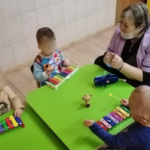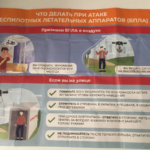The Moldovan precedent

When at the beginning of the ХХ century, following the results of the WWI, the Austro-Hungarian Empire disintegrated, Vlachs with Transylvanians and Moldavans were also among the liberated nations who received statehood. Three branches of the single nation reunited in one state. It is Interesting, the population of this state did not have a self-name. There was the nation, but there was no name. It was later invented, they were called Romanians – with an allusion to the Roman Empire, which included the lands of the Romanian ancestors – the Dacians, assimilated by the Romans. But the Romanians were not allowed to live peacefully. In 1940, the “great liberator” Joseph Stalin, by agreement with Adolf Hitler, started the WWII and chopped off part of the territory from Romania, creating the Moldavian SSR by joining the annexed Romanian Bessarabia to the lands of the Moldavian ASSR. The republic, which arose by the father’s of nations will, existed until 1990, but then disintegrated as a result of centrifugal events on the territory of the USSR, losing part of its territory recognized in the world.
The fact is that in the early 1990s, pro-Romanian sentiments were widespread among the political elite of Moldova, there was an idea of uniting Moldova and Romania into a single state. This idea was unacceptable to the political elite of the Transnistrian region. The ethnic-linguistic composition of Pridnestrovie differs significantly from the general Moldovan one, Moldovans do not make up the majority here, a significant part of the population are Ukrainians and Russians. The so-called “independence” of the unrecognized Pridnestrovian Moldavian Republic was proclaimed on August 25, 1991, after which a short-term armed conflict started between the separatists and the Russian military on the one hand and the Moldovan troops on the other, which ended in the actual victory of the separatists with the participation of the Russian army.
In the end, on July 21, 1992, an Agreement on the principles for settling the conflict in Pridnestrovie was signed between Moldova and Russia. Today, according to the legislation of Moldova, Pridnestrovie has the status of an autonomous territorial entity with a special legal status. Its independence is not recognized by any UN member state, only a few states with unrecognized separatist status (Abkhazia, South Ossetia and Nagorny Karabakh).
But we are especially interested in the specific facet of this “story with geography.”
In 2010, information about possible secret agreements on the accession of Pridnestrovie to Ukraine between the presidents of Ukraine and Russia came to light. In November 2011, Igor Smirnov, the President of the unrecognized Pridnestrovian Moldavian Republic, in an interview with the newspaper Ukraina Moloda (Young Ukraine) stated that he did not exclude a referendum on the accession of Pridnestrovie to Ukraine. In November 2017, Igor Dodon, the President of Moldova, made an unexpected announcement that Pridnestrovie could become either part of Ukraine or Moldova. The hint was accepted as a definite signal from the Russian Federation about the exchange of the PMR for the Crimea.
Looking at the map of the region and evaluating the positions of forces, one can make the assumption that the situation prompted Ukraine a quite logical decision – to take advantage of the antipathy of the Pridnestrovians towards the official Chisinau, warm up slightly pro-Ukrainian sentiments in the Republic with a large Ukrainian diaspora, take advantage of the weakness of Moldova, hold a referendum” and … and that’s it! The PMR turns out in the hands of the “Kyiv regime”! What an increase in the territory of Ukraine, the entire industrial potential of Pridnestrovie, half a million people! Hooray! “The PMR is ours!”, “Return to the native harbor!”, “Forever with Ukraine!” etc., etc.
But no! Ukraine did not agree to this. Why? For the same reason! Since 2014, Ukrainians have been paying with blood for their desire to live in Europe, according to European laws, which includes, among other things, the Helsinki agreements of 1975 on the inviolability of the borders that were made after the WWII. Ukrainians were able to understand that building a state on someone else’s grief is unreasonable and criminal. And today, fighting off Russian aggression, having concerns about a stab in the back from the quasi-Pridnestrovian Armed Forces, the leadership of Ukraine, however, did not take the path of preventive occupation of the PMR, on the contrary, they declared support for Moldova, which was subjected to “swaying” by the pro-Moscow forces in the sovereign republic.
With regard to fellow Ukrainians from the PMR, Kyiv has long been pursuing a policy of cultural support – everything that has already been written about many times before: financial sponsorship of cultural projects; textbooks for schools, money for publishing books, scholarships for students; cultural and educational exchange: students, artists, journalists; invitations to participate in contests and competitions, etc. The Ukrainian authorities, justifiably criticized by both Ukrainian and Pridnestrovian activists for insufficient attention and poor funding of the declared processes, agree that more work needs to be done in this direction. But this is the normal working rhythm of the living process. In the Ukrainian politicum today, even to stutter about the hypothetical accession of Pridnestrovian to Ukraine is considered indecent. One will immediately pass for an old Soviet person or a cave nationalist. By the way, the Ukrainian nationalists, who fought in the PMR on the side of the separatists and Russia in the 1990s, today admit that they made a mistake then.
I, a Tatar, who do not equally perceive both Russian chauvinism and Tatar extreme nationalism, was compelled to turn to the topic of Pridnestrovie by the desire of some of my fellow countrymen to resolve the issue with the Tatar diaspora in Bashkortostan by force. Well, in no way they want to follow the path of financial and cultural support for like-minded fellow countrymen, gaining sympathizers and allies! They choose a force program – dictate against political opponents, building ultimatum-demanding relations with claims for political privileges, threats to “come to the aid of fellow countrymen, if anything,” etc. And the point here is not at all that we had to hear enough during the disputes and read unflattering statements about ourselves. It is a pity that we hear this from the same Tatar patriots, passionate for their nation, that is not free today, sincerely wishing it well. Here we can just hope that a political model that can bring peace and prosperity to the Tatar people will prevail, and not plunge into the darkness of timelessness and hopelessness as part of a Tatar People’s Republic that is not recognized in any country in the world.


Leave a Reply